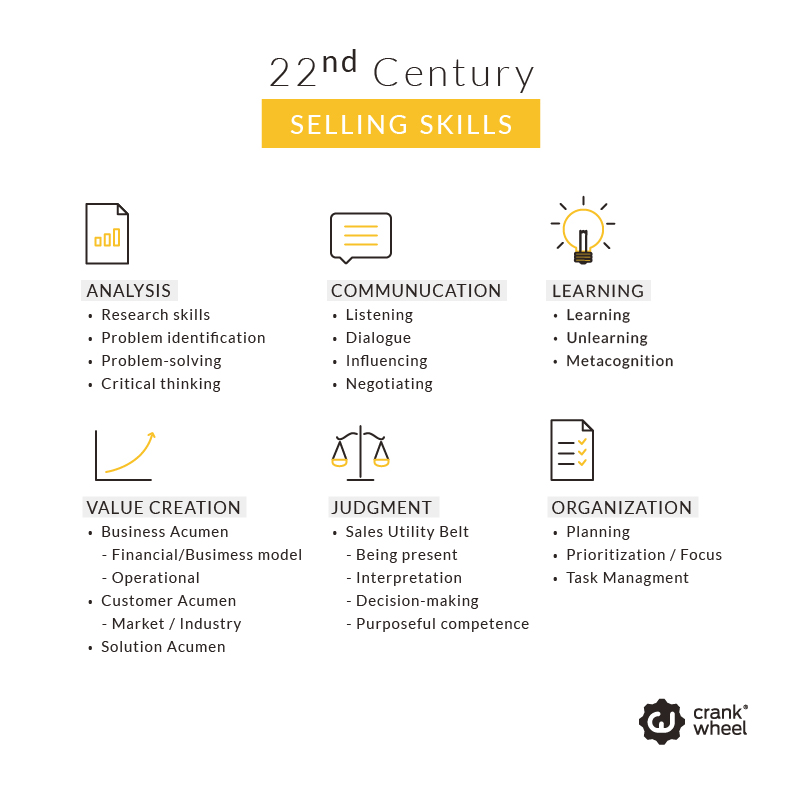What to look for in a Software Sales Person
Scaling means committing to growth. Growing means staffing up in sales and marketing departments. You do need a sales team. The clock has started ticking. From the moment investor funds hit your account, you are in a race against time.
Grow fast enough and you either break even, thereby making it easier to raise more money and keep growing, or start raising with enough time to keep extending the runway while you edge ever closer to breaking even and making a profit. Consequently, you need a sales team that can hit or exceed target. Missing target, even by one month or quarter - depending on your burn rate - brings your startup a step closer to failure. No founder or management team wants to risk that.
Sales Revenue Responsibilities
With scale comes responsibility. More staff means that co-founders are spending more time managing people.
Gone are the days when they can make calls, drum up new clients and take demo calls/meetings. Now co-founders are juggling, even more, hats than when they were hustling in the early days. As a result, the sales team now shoulders a considerable responsibility for the overall success or failure of the company.

Unfortunately, the majority of sales people won’t understand or fully appreciate this, unless they’ve worked for other startups, or founded/co-founded one. Only those with startup experience can appreciate how crucial it is that targets are hit and growth maintained. Once revenue exceeds the burn rate, everyone can breathe a little easier, but until then, the whole company is effectively operating on borrowed time.
When it comes to recruiting sales people, there is one universal truth throughout the profession, whether someone has Fortune 500 or startup experience: Sales people are great at selling themselves. People buy into people. So never be surprised when interviewing someone with a few years experience who seems friendly, charming, personable: all of the skills and qualities you are looking for. Now is the time to take a step back and think about what you need that will get the job done, not how friendly and enthusiastic someone seemed talking over coffee.
Skills Your Salespeople Need
Without a doubt, friendly, charming, personable are all valuable qualities. Salespeople are usually pretty outgoing. Extroverts, for the most part. However, plenty of introverts enter the profession too, and many thrive.
“They seem decent, we should hire them” - this could get your sales team in trouble. Far far too many sales people, maybe looking for new experience or seeing a startup as an easy temporary gig - compared to a large corporation - over-promise and under-deliver. When that happens, salespeople can usually walk into a new job.
Startups can suffer a serious, sometimes fatal, setback when a salesperson or team consequently fails to hit targets. Here are a few skills and qualities that are more useful than a Colgate white smile and friendly personality.

1: Listening
Good sales people should listen more than they speak.
Sales agents who dive into a call or instant demo with a whole list of features and technical jargon aren’t going to get far. You need someone who can ask questions and actively listen for opportunities to demonstrate how the software solves a specific pain point for a potential client.
2: Problem Solving
Product features don’t sell software: Solutions for problems are why prospects agree to take calls/demos.
Potential customers want to know how you are solving a problem they are having, whether that means giving them more time, saving money, improving operational efficiencies, or another more particular challenge. If an agent can do that, while referencing other examples - ideally, similar companies in the same sector/vertical - then your team will get closer to hitting target.
3: Hustling
In the startup community, hustling is just part of a standard day in the office.
For sales people, this may mean strategic account management and sourcing leads. Whatever you call it, a hustling mindset is essential. Marketing needs to work with sales to produce a steady, timely stream of sales leads. Some companies may outsource some of this function, or outsource cold calling - booking appointments for the team - but that doesn’t mean a sales agent should neglect sourcing leads themselves.
Strong market awareness means they are acutely aware of who your potential customers are and they are proactive about finding leads, booking calls and giving leads instant demo.
4: Product Knowledge
Product knowledge is essential. Make sure, before a new sales person starts taking calls, that they fully understand the product, what it does - and doesn’t do. No one benefits when an agent gets a deal on the basis of some highly elaborate new feature that only one client needs and they have a clear grasp of the marketing and sales material.
5: Questioning and Objection Handling
Listening means asking questions. Explaining how a product solves a prospect’s challenges, then understanding and overcoming objections.
It is a rare call or demo when a potential client doesn’t have objections. Now is the time when a salesperson needs to make an ask. Ensure that they never finish a call without getting a clear plan on next steps, which could mean a prospect is signing up for a free trial straight away.
Even if they don’t, make sure an agent has asked a question that clearly answers the following question: “What, if anything, is stopping you from signing up/becoming a customer today?” Once you know the answer, you can take action that could, should - unless there are serious objections, or they don’t have the budget - turn a prospect into a client.
